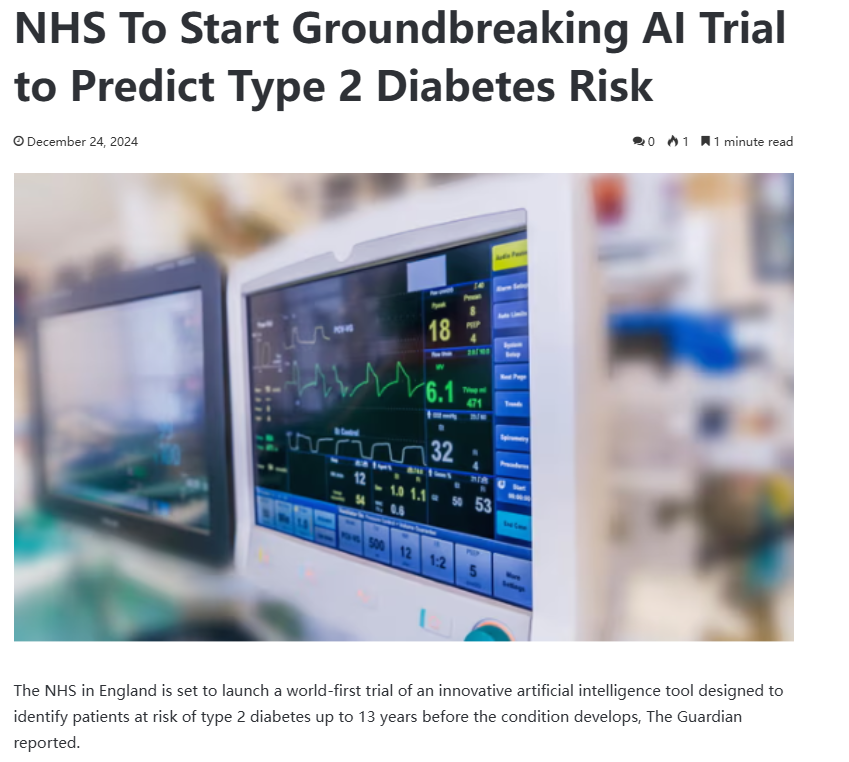according toU.K.The Guardian reported on 24 October that the NHS will launch the world's first trial of artificial intelligence, using a "transformative" tool.Recognizing the risk of type 2 more than a decade in advancediabetespatients.

According to 1AI, more than 500 million people around the world already have type 2 diabetes, and new ways to identify those at risk before they develop the disease have become a major global public health goal. According to projections, by 2050, about 1 billion people worldwide will be afflicted by the disease.
Type 2 diabetes isSerious complications such as blindness, kidney failure, heart attack, stroke and lower limb amputationThe main cause of the disease. Although it is commonly associated with obesity, physical inactivity, and family history, not all patients have these typical features.
Doctors and scientists have now developed a groundbreaking AI tool that can predict a patient's risk 13 years before diabetes symptoms become apparent. The technology works byAnalyzing routine electrocardiogram (ECG) scan dataThe new technology, which recognizes small changes that are imperceptible to the human eye, provides an early warning of the risk of developing type 2 diabetes. This means that patients have the opportunity to avoid developing the disease through early interventions such as dietary and lifestyle modifications.
The NHS plans to trial the tool at Imperial College Healthcare Trust and Chelsea and Westminster Hospital NHS Foundation Trust from 2025, becoming the first healthcare system in the world to apply the technology. This AI tool is expected to beRoll out to England and other countries over the next few yearsof the healthcare system.
Preliminary tests have shown that this technology is capable ofAccurately predicts the risk of patients of different ages, sexes, races, and social backgrounds in the presence of approximately 70%. Accuracy is further improved when combining genetic and clinical information.
Professor Bryan Williams, Chief Scientific Officer of the British Heart Foundation, said, "This study used AI to analyze ECGs and uncovered important information that is not readily apparent in routine health data. This discovery has the potential to change the way we predict type 2 diabetes risk."
"As the number of diabetes cases increases, this technology can certainly provide a valuable opportunity for early intervention to help people reduce their risk of diabetes and avoid complications."